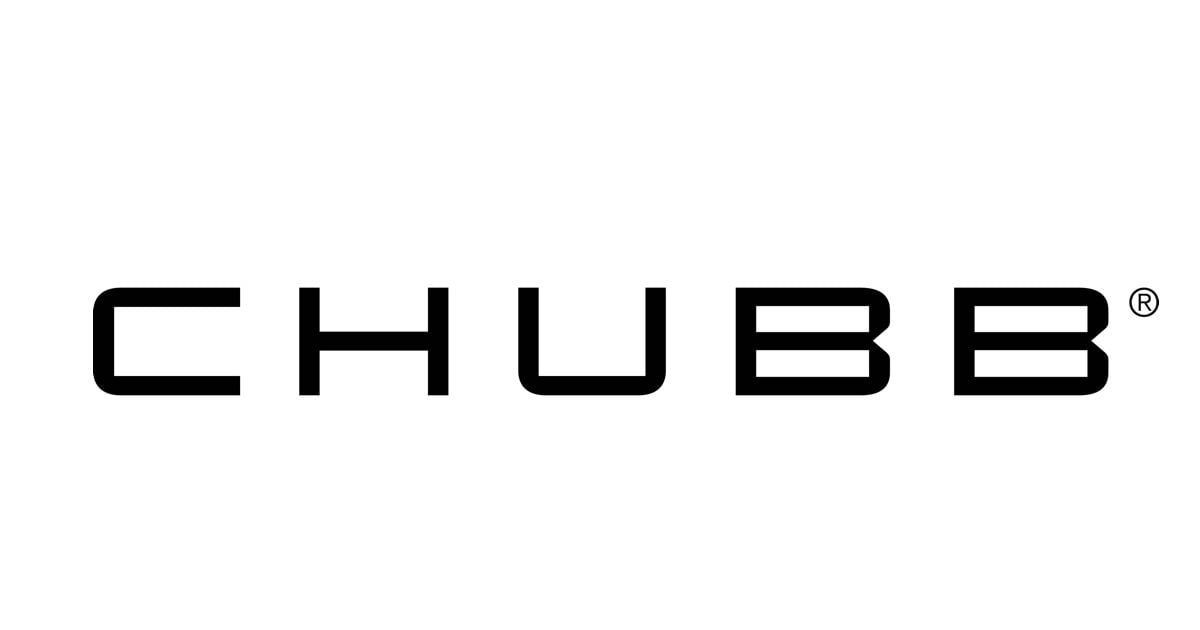The best homeowners insurance in Connecticut
If you’re looking to buy homeowners insurance from a well-rated national brand, consider one of these insurers from NerdWallet’s list of the Best Homeowners Insurance Companies.
| Company | NerdWallet star rating | Average annual rate |
|---|---|---|
| State Farm | 5.0 NerdWallet rating | $1,195 |
| Farmers | 5.0 NerdWallet rating | $1,465 |
| Chubb | 5.0 NerdWallet rating | $2,010 |
| Vermont Mutual | 4.5 NerdWallet rating | $745 |
| Amica | 4.5 NerdWallet rating | $1,090 |
| USAA* | 5.0 NerdWallet rating | $1,335 |
| *USAA homeowners policies are available only to active military, veterans and their families. | ||
More about the best home insurance companies in Connecticut
See more details about each company to help you decide which one is best for you.
State Farm
5.0
Coverage options
Discounts
NAIC complaints
America’s largest home insurer celebrated its 100th anniversary in 2022. One useful endorsement you may be able to add to a State Farm policy is an inflation guard rider, which automatically increases your policy limits to make sure your coverage doesn’t fall short.
State Farm also offers a free Ting device as a perk for home insurance policyholders. Ting is a smart plug that monitors your home’s electrical network to help prevent fires.
Learn more with our State Farm homeowners insurance review.
Farmers
5.0
Coverage options
Discounts
NAIC complaints
Homeowners policies from Farmers may include two valuable types of insurance: extended dwelling and replacement cost coverage. Extended dwelling coverage gives you extra insurance for the structure of your house, while replacement cost coverage offers higher reimbursement for stolen or destroyed belongings.
Some Farmers policies also come with perks that can save you money. For example, with claim forgiveness, Farmers won’t raise your rate for a claim as long as you haven’t filed one within the past five years.
Learn more with our Farmers homeowners insurance review.

Chubb
5.0
Coverage options
Discounts
NAIC complaints
Chubb generally serves affluent policyholders with high-value homes, offering lofty coverage limits and plenty of perks. For example, the company covers water damage from backed-up sewers and drains, and it pays to bring your home up to the latest building codes during reconstruction after a claim. (Many insurers charge more for these types of coverage.)
If you insure a secondary or seasonal home in Connecticut with Chubb, you can sign up for the company’s Property Manager service at no charge. With this service, a Chubb representative will inspect your home after a hurricane, report its condition to you, submit a claim on your behalf and help prevent further damage.
Learn more with our Chubb homeowners insurance review.

Vermont Mutual
4.5
Coverage options
Discounts
NAIC complaints
Founded in 1828, Vermont Mutual sells homeowners insurance through local independent agents. The company stands out for service, drawing far fewer complaints than expected for an insurer of its size, according to the National Association of Insurance Commissioners.
You may be able to add coverage for major appliances such as water heaters, laundry machines or solar energy systems. Other endorsements may be available to cover identity theft, damage to underground service lines, backed-up drains and theft of expensive jewelry.

Amica
4.5
Coverage options
Discounts
NAIC complaints
Rhode Island-based Amica stands out for its customer service and broad range of coverage options. The company has drawn significantly fewer consumer complaints to state regulators than expected for an insurer of its size, according to the NAIC.
You can customize your policy with extra coverage above your dwelling limit, in case your house costs more to rebuild than expected. You may also want to add coverage for damage from water backups or recovery from identity theft.
Get more information in our Amica homeowners insurance review.

USAA
5.0
Coverage options
Discounts
NAIC complaints
USAA sells homeowners insurance to veterans, active military members and their families. If that description fits you, you may want to consider a USAA policy. That’s because the company’s homeowners insurance has certain features that other insurers may charge extra for.
For example, USAA automatically covers your personal belongings on a “replacement cost” basis. Many companies pay out only what your items are worth at the time of the claim, which means you may not get much for older items. USAA pays enough for you to buy brand-new replacements for your stuff.
Learn more with our USAA homeowners insurance review.
How much does homeowners insurance cost in Connecticut?
The average annual cost of home insurance in Connecticut is $1,405. That’s 23% less than the national average of $1,820.
In most U.S. states, including Connecticut, many insurers use your credit-based insurance score to help set rates. Your insurance score is similar but not identical to your traditional credit score.
In Connecticut, those with poor credit pay an average of $2,780 per year for homeowners insurance, according to NerdWallet’s rate analysis. That’s 98% more than those with good credit.
» MORE: How your credit score affects homeowners insurance
Average cost of homeowners insurance in Connecticut by city
How much you pay for home insurance in Connecticut will depend on your ZIP code. For example, the average cost of homeowners insurance in Hartford is $1,540 a year, while homeowners in New Haven pay an average of $1,915 per year.
| City | Average annual rate | Average monthly rate |
|---|---|---|
| Bridgeport | $1,655 | $138 |
| Bristol | $1,240 | $103 |
| Danbury | $1,295 | $108 |
| East Hartford | $1,295 | $108 |
| Enfield | $1,265 | $105 |
| Fairfield | $1,465 | $122 |
| Greenwich | $1,390 | $116 |
| Hamden | $1,570 | $131 |
| Hartford | $1,540 | $128 |
| Manchester | $1,270 | $106 |
| Meriden | $1,505 | $125 |
| Middletown | $1,465 | $122 |
| Milford | $1,695 | $141 |
| New Britain | $1,345 | $112 |
| New Haven | $1,915 | $160 |
| Norwalk | $1,495 | $125 |
| Norwich | $1,470 | $123 |
| Shelton | $1,340 | $112 |
| Stamford | $1,405 | $117 |
| Stratford | $1,580 | $132 |
| Trumbull | $1,375 | $115 |
| Wallingford | $1,520 | $127 |
| Waterbury | $1,540 | $128 |
| West Hartford | $1,300 | $108 |
| West Haven | $1,705 | $142 |
» MORE: What’s the average cost of homeowners insurance?
The cheapest home insurance in Connecticut
Here are the insurers we found with average annual rates below the Connecticut average of $1,405.
| Company | NerdWallet star rating | Average annual rate |
|---|---|---|
| Vermont Mutual | 4.5 NerdWallet rating | $745 |
| Mapfre | 4.0 NerdWallet rating | $955 |
| Amica | 4.5 NerdWallet rating | $1,090 |
| Narragansett Bay | 3.5 NerdWallet rating | $1,175 |
| State Farm | 5.0 NerdWallet rating | $1,195 |
| Progressive | Not rated | $1,270 |
| Andover Companies | Not rated | $1,305 |
| USAA* | 5.0 NerdWallet rating | $1,335 |
| *USAA homeowners policies are available only to active military, veterans and their families. | ||
» MORE: The cheapest homeowners insurance
What to know about Connecticut homeowners insurance
In New England, winter weather can be a huge concern for homeowners. When shopping for the best homeowners insurance in Connecticut, you may also want to consider the risks of flooding and tropical storms as well.
Winter weather
Connecticut experiences its fair share of cold and snowy winters, which could cause a range of damage to your home. Heavy snow can collapse your roof, while frozen pipes and ice dams can cause water damage.
A standard homeowners policy will generally cover these scenarios as long as you’ve taken steps to protect your home. For instance, your insurer may not cover damage from a frozen pipe if you turned off your heat while you were away from home.
However, some types of winter weather damage might require extra coverage. For example, your homeowners policy won’t pay for damage from melting snow that seeps into your basement. For that, you’d need separate flood insurance.
If it isn’t clear in your policy, contact your insurance agent to see what coverage you have for winter hazards.
» MORE: How to make a storm damage insurance claim
Flooding
Connecticut homeowners aren’t immune to the frustrations of flooding, especially in coastal areas and along rivers. Most standard homeowners insurance policies won’t cover flooding from external sources such as heavy rain, overflowing bodies of water, tidal surges or melting snow. If your home is in a flood plain, your lender will likely require you to purchase flood insurance.
To find out if you’re at risk, check out the Federal Emergency Management Agency's flood maps or visit RiskFactor.com, a website from the nonprofit First Street Foundation. Even if you have a low risk, it may be worthwhile to purchase flood insurance for extra peace of mind.
Note that while you can purchase flood coverage anytime, there’s typically a 30-day waiting period before the insurance takes effect.
» MORE: Why you might want flood insurance — even if it’s not required
Tropical storms and thunderstorms
While Connecticut is rarely in the direct path of hurricanes, it is still susceptible to tropical storms and thunderstorms. This type of weather can cause flooding, as we covered above, plus hail and heavy winds.
In Connecticut, your homeowners insurance policy will generally cover damage from high winds or hail, but you may have a separate wind deductible in your policy. This additional deductible can take the form of a flat rate, such as $1,000, or a percentage of your dwelling coverage. (A homeowners insurance deductible is the amount subtracted from your claim payout.)
For example, your policy may have a $1,000 deductible for most claims and a 1% deductible for wind claims. So if your house has $250,000 worth of dwelling coverage, you’d have to pay for the first $2,500 of wind damage yourself.
A hurricane deductible may also apply if your home experiences damage during a hurricane declared by the National Hurricane Center. Make sure to review your policy and understand your coverage limits if you live in a part of Connecticut with a higher risk of storm damage.
» MORE: Home insurance calculator: Estimate your rate
Connecticut insurance department
The Connecticut Insurance Department oversees the state’s insurance industry and has useful resources for consumers. For example, it provides an insurance company search tool and answers frequently asked questions about homeowners insurance in Connecticut.
The Connecticut Insurance Department is also your go-to location to file a complaint against your insurance company online, through email or by mail. You can call its consumer hotline with insurance questions at 800-203-3447.
Looking for more insurance in Connecticut?
-
Cheap car insurance in Connecticut.
-
Best Medicare Advantage plans in Connecticut.
Amanda Shapland contributed to this story.
NerdWallet averaged rates for 40-year-old homeowners from various insurance companies in every ZIP code across the state. All rates are rounded to the nearest $5.
Sample homeowners were nonsmokers with good credit living in a single-family, two-story home built in 1984. They had a $1,000 deductible and the following coverage limits:
-
$300,000 in dwelling coverage.
-
$30,000 in other structures coverage.
-
$150,000 in personal property coverage.
-
$60,000 in loss of use coverage.
-
$300,000 in liability coverage.
-
$1,000 in medical payments coverage.
We made minor changes to the sample policy in cases where rates for the above coverage limits or deductibles weren’t available.
We changed the credit tier from “good” to “poor,” as reported to the insurer, to see rates for homeowners with poor credit.
These are sample rates generated through Quadrant Information Services. Your own rates will be different.
Star rating methodology
NerdWallet’s homeowners insurance ratings reward companies for customer-first features and practices. Ratings are based on weighted averages of scores in several categories, including financial strength, consumer complaints, coverages, discounts and online experience. These ratings are a guide, but we encourage you to shop around and compare several insurance quotes to find the best rate for you. NerdWallet does not receive compensation for any reviews. Read our full homeowners insurance rating methodology.
Complaint methodology
NerdWallet examined complaints received by state insurance regulators and reported to the National Association of Insurance Commissioners in 2019-2021. To assess how insurers compare to one another, the NAIC calculates a complaint index each year for each subsidiary, measuring its share of total complaints relative to its size, or share of total premiums in the industry. To evaluate a company’s complaint history, NerdWallet calculated a similar index for each insurer, weighted by market shares of each subsidiary, over the three-year period. NerdWallet conducts its data analysis and reaches conclusions independently and without the endorsement of the NAIC. Ratios are determined separately for auto, home (including renters and condo) and life insurance.





